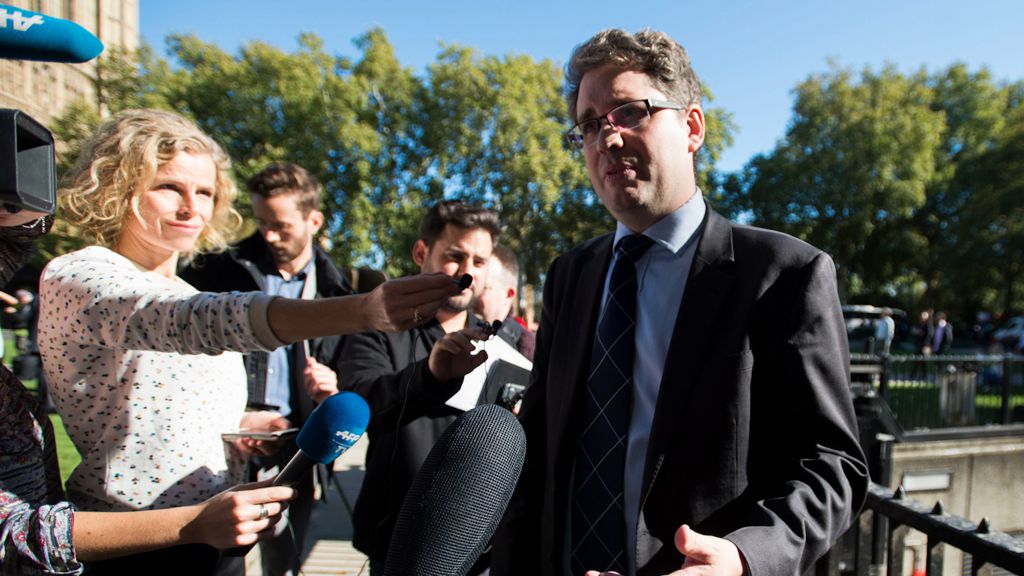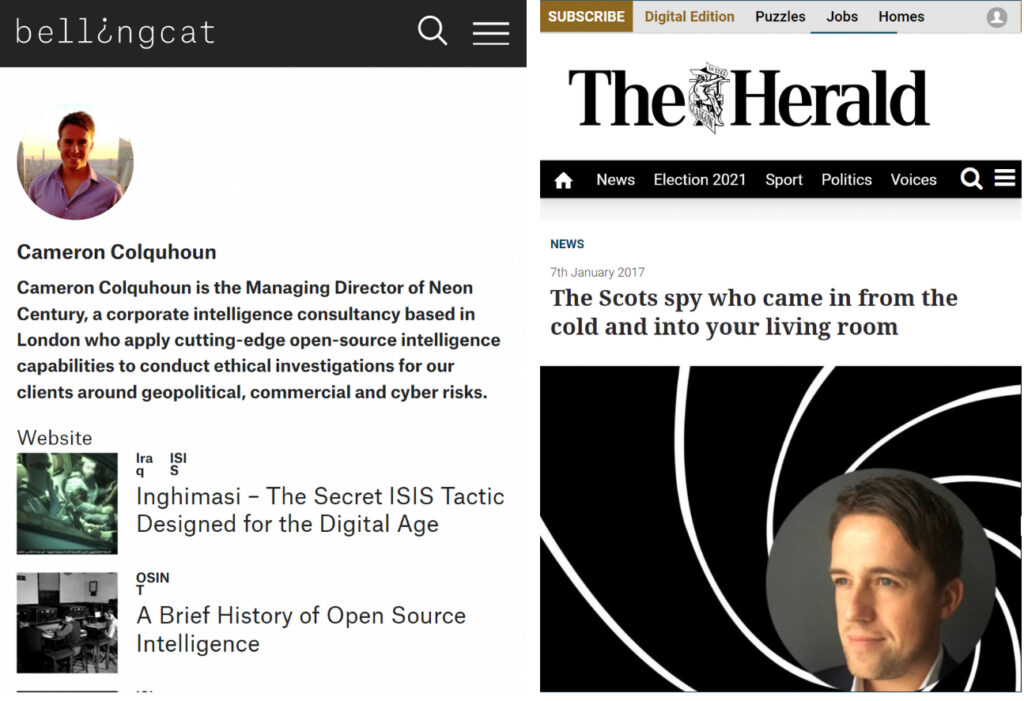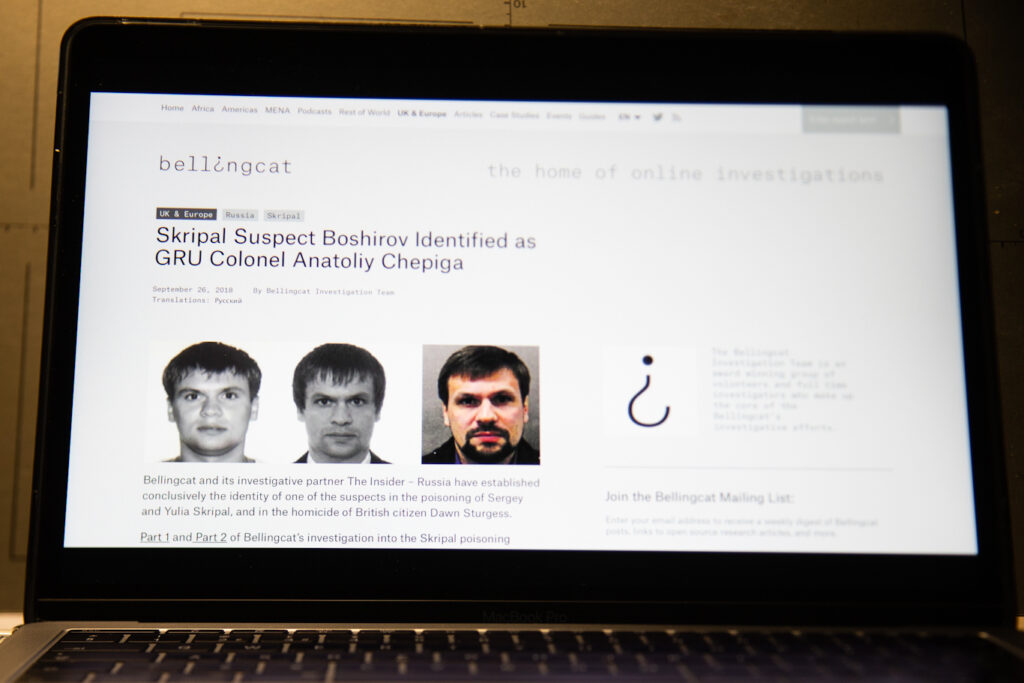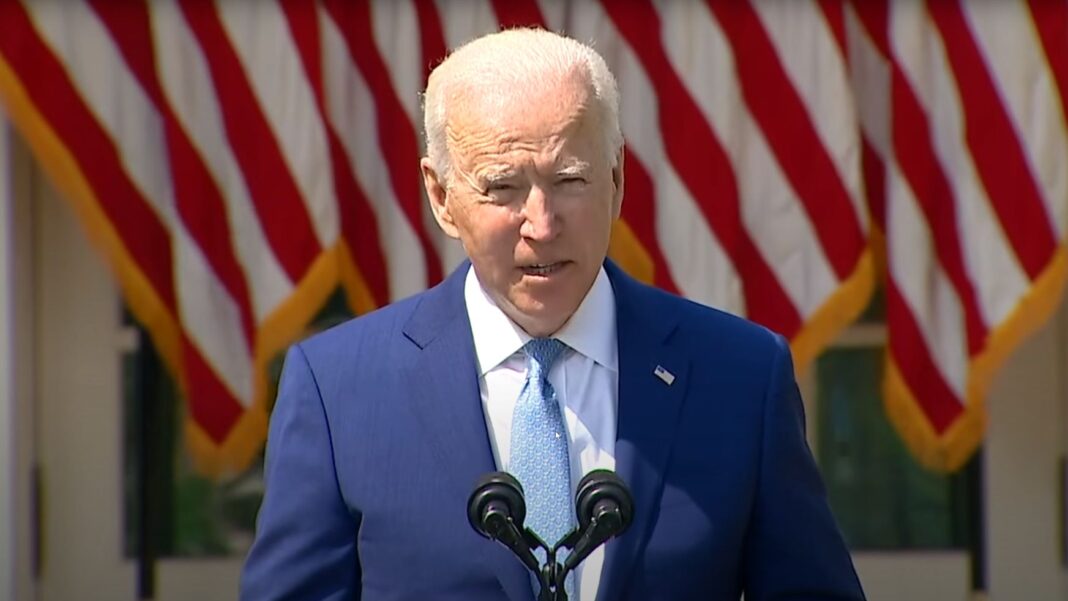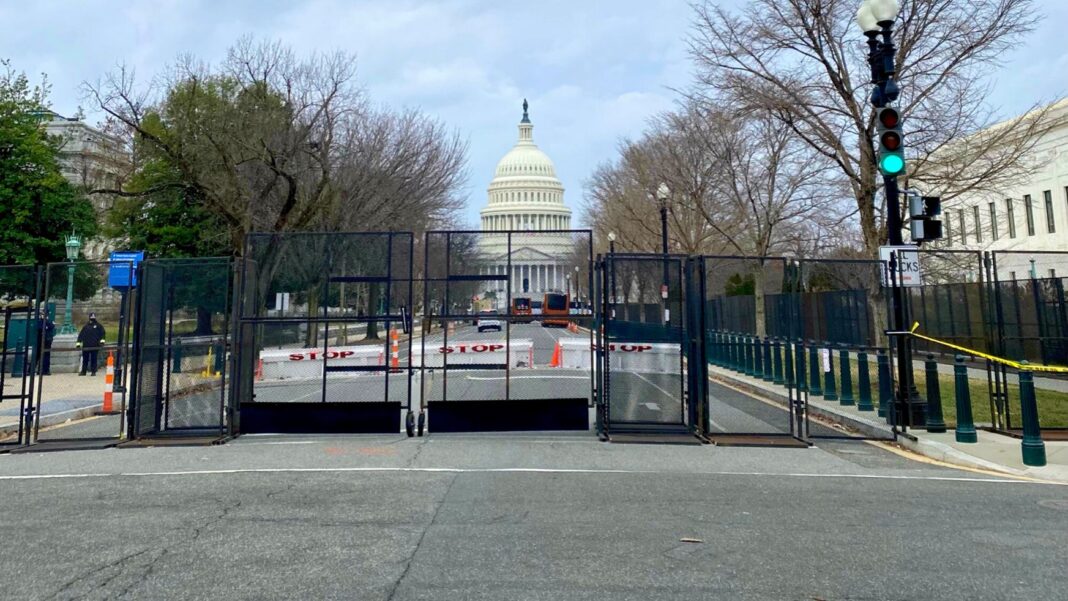For a self-proclaimed citizen journalism outfit, an alarming number of Bellingcat’s staff and contributors come from highly suspect backgrounds, including high-level positions in military and intelligence agencies.
AMSTERDAM — Investigative site Bellingcat is the toast of the popular press. In the past month alone, it has been described as “an intelligence agency for the people” (ABC Australia), a “transparent” and “innovative” (New Yorker) “independent news collective,” “transforming investigative journalism” (Big Think), and an unequivocal “force for good” (South China Morning Post). Indeed, outside of a few alternative news sites, it is very hard to hear a negative word against Bellingcat, such is the gushing praise for the outlet founded in 2014.
This is troubling, because the evidence compiled in this investigation suggests Bellingcat is far from independent and neutral, as it is funded by Western governments, staffed with former military and state intelligence officers, repeats official narratives against enemy states, and serves as a key part in what could be called a “spook to Bellingcat to corporate media propaganda pipeline,” presenting Western government narratives as independent research.
Citizen journalism staffed with spies and soldiers
An alarming number of Bellingcat’s staff and contributors come from highly suspect backgrounds. Senior Investigator Nick Waters, for example, spent three years as an officer in the British Army, including a tour in Afghanistan, where he furthered the British state’s objectives in the region. Shortly after leaving the service, he was hired by Bellingcat to provide supposedly bias-free investigations into the Middle East.
Former contributor Cameron Colquhoun’s past is even more suspect. Colquhoun spent a decade in a senior position in GCHQ (Britain’s version of the NSA), where he ran cyber and Middle Eastern terror operations. The Scot specializes in Middle Eastern security and also holds a qualification from the U.S. State Department. None of this, however, is disclosed by Bellingcat, which merely describes him as the managing director of a private intelligence company that “conduct[s] ethical investigations” for clients around the world — thus depriving readers of key information they need to make informed judgments on what they are reading.
There are plenty of former American spooks on Bellingcat’s roster as well. Former contributor Chris Biggers, who penned more than 60 articles for the site between 2014 and 2017, previously worked for the National Geospatial-Intelligence Agency — a combat support unit that works under the Department of Defense and the broader Intelligence Community. Biggers is now the director of an intelligence company headquartered in Virginia, on the outskirts of Washington (close to other semi-private contractor groups like Booz Allen Hamilton), that boasts of having retired Army and Air Force generals on its board. Again, none of this is disclosed by Bellingcat, where Biggers’s bio states only that he is a “public and private sector consultant based in Washington, D.C.”
For six years, Dan Kaszeta was a U.S. Secret Service agent specializing in chemical, biological and nuclear weapons, and for six more he worked as program manager for the White House Military Office. At Bellingcat, he would provide some of the intellectual ammunition for Western accusations about chemical weapons use in Syria and Russia’s alleged poisoning of Sergei Skripal.
Kaszeta is also a fellow at the Royal United Services Institute, a think tank funded by a host of Western governments as well as weapons contractors such as Airbus, Lockheed Martin and Raytheon. Its president is a British field marshal (the highest attainable military rank) and its senior vice president is retired American General David Petraeus. Its chairman is Lord Hague, the U.K.’s secretary of state between 2010 and 2015.
ll of this matters if a group is presenting itself as independent when, in reality, their views align almost perfectly with the governments funding them. But yet again, Bellingcat fails to follow basic journalism ethics and inform readers of these glaring conflict of interests, describing Kaszeta as merely the managing director of a security company and someone with 27 years of experience in security and antiterrorism. This means that unless readers are willing to do a research project they will be none the wiser.
Other Bellingcat contributors have similar pasts. Nour Bakr previously worked for the British government’s Foreign and Commonwealth Office while Karl Morand proudly served two separate tours in Iraq with the U.S. 82nd Airborne Division.
Government and intelligence officials are the opposite of journalists. The former exist to promote the interests of power (often against those of the public) while the latter are supposed to hold the powerful to account on behalf of the people. That is why it is so inappropriate that Bellingcat has had so many former spooks on their books. It could be said that ex-officials who have renounced their past or blown the whistle, such as Daniel Ellsberg or John Kiriakou, have utility as journalists. But those who have simply made the transition into media without any change in positions usually serve only the powerful.
Who pays the piper?
Just as startling as its spooky staff is Bellingcat’s source of funding. In 2016 its founder, Eliot Higgins, dismissed the idea that his organization got money from the U.S. government’s National Endowment for Democracy (NED) as a ludicrous conspiracy theory. Yet, by the next year, he openly admitted the thing he had laughed off for so long was, in fact, true (Bellingcat’s latest available financial report confirms that they continue to receive financial assistance from the NED). As many MintPress readers will know, the NED was explicitly set up by the Reagan administration as a front for the CIA’s regime-change operations. “A lot of what we do today was done covertly 25 years ago by the CIA,” said the organization’s co-founder Allen Weinstein, proudly.
Higgins himself was a senior fellow at the Atlantic Council, NATO’s quasi-official think tank, from 2016 to 2019. The Atlantic Council’s board of directors is a who’s who of state power, from war planners like Henry Kissinger, Condoleezza Rice and Colin Powell to retired generals such as James “Mad Dog” Mattis and H.R. McMaster. It also features no fewer than seven former CIA directors. How Higgins could possibly see taking a paid position at an organization like this while he was still the face of a supposedly open and independent intelligence collective as being at all consistent is unclear.
Other questionable sources of income include the Human Rights Foundation, an international organization set up by Venezuelan activist Thor Halvorssen Mendoza. Halvorssen is the son of a former government official accused of being a CIA informant and a gunrunner for the agency’s dirty wars in Central America in the 1980s and the cousin of convicted terrorist Leopoldo Lopez. Lopez in turn was a leader in a U.S.-backed coup in 2002 and a wave of political terror in 2014 that killed at least 43 people and caused an estimated $15 billion worth of property damage. A major figure on the right-wing of Venezuelan politics, Lopez told journalists that he wants the United States to formally rule the country once President Nicolas Maduro is overthrown. With the help of the Spanish government, Lopez escaped from jail and fled to Spain last year.
Imagine, for one second, the opposite scenario: an “independent” Russian investigative website staffed partially with ex-KGB officials, funded by the Kremlin, with most of their research focused on the nefarious deeds of the U.S., U.K. and NATO. Would anyone take it seriously? And yet Bellingcat is consistently presented in corporate media as a liberatory organization; the Information Age’s gift to the people.
The Bellingcat to journalism pipeline
The corporate press itself already has a disturbingly close relationship with the national security state, as does social media. In 2019, a senior Twitter executive was unmasked as an active duty officer in the British Army’s online psychological operations unit. Coming at a time when foreign interference in politics and society was the primary issue in U.S. politics, the story was, astoundingly, almost completely ignored in the mainstream press. Only one U.S. outlet of any note picked it up, and that journalist was forced out of the profession weeks later.
Increasingly, it seems, Bellingcat is serving as a training ground for those looking for a job in the West’s most prestigious media outlets. For instance, former Bellingcat contributor Brenna Smith — who was recently the subject of a media storm after she successfully pressured a number of online payment companies to stop allowing the crowdfunding of the Capitol Building insurrectionists — announced last month she would be leaving USA Today and joining The New York Times. There she will meet up with former Bellingcat senior investigator Christiaan Triebert, who joined the Times’ visual investigations team in 2019.
The Times, commonly thought of as the United States’ most influential media outlet, has also collaborated with Bellingcat writers for individual pieces before. In 2018, it commissioned Giancarlo Fiorella and Aliaume Leroy to publish an op-ed strongly insinuating that the Venezuelan state murdered Oscar Perez. After he stole a military helicopter and used it to bomb government buildings in downtown Caracas while trying to ignite a civil war, Perez became the darling of the Western press, being described as a “patriot” (The Guardian), a “rebel” (Miami Herald), an “action hero” (The Times of London), and a “liberator” (Task and Purpose).
Until 2020, Fiorella ran an opposition blog called “In Venezuela” despite living in Canada. Leroy is now a full-time producer and investigator for the U.K.-government network, the BBC.
Bad news from Bellingcat
What we are uncovering here is a network of military, state, think-tank and media units all working together, of which Bellingcat is a central fixture. This would be bad enough, but much of its own research is extremely poor. It strongly pushed the now increasingly discredited idea of a chemical weapons attack in Douma, Syria, attacking the members of the OPCW who came forward to expose the coverup and making some bizarre claims along the way. For years, Higgins and other members of the Bellingcat team also signal-boosted a Twitter account purporting to be an ISIS official, only for an investigation to expose the account as belonging to a young Indian troll in Bangalore. A leaked U.K. Foreign Office document lamented that “Bellingcat was somewhat discredited, both by spreading disinformation itself, and by being willing to produce reports for anyone willing to pay.”
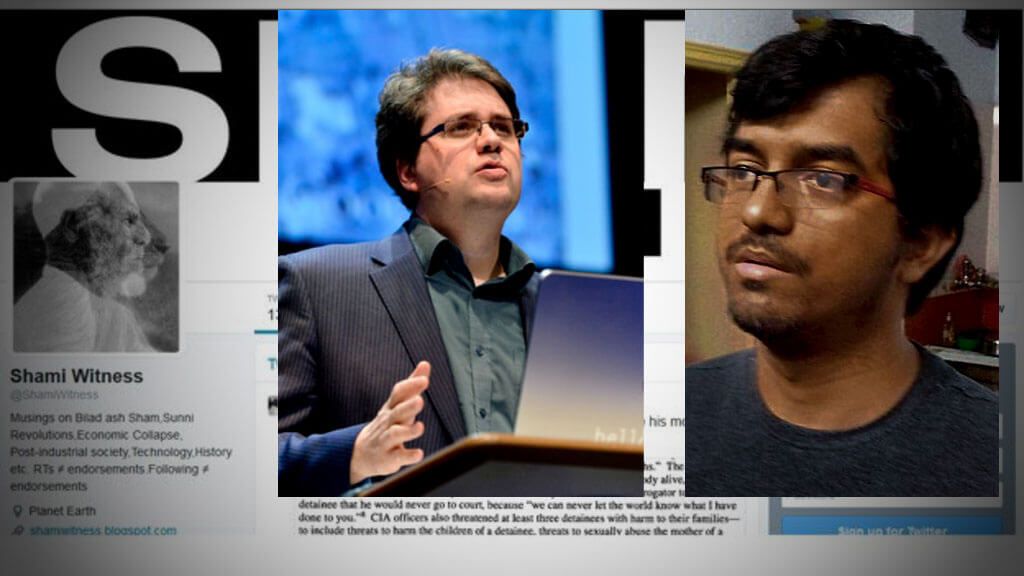
Ultimately, however, the organization still provides utility as an attack dog for the West, publishing research that the media can cite, supposedly as “independent,” rather than rely directly on intelligence officials, whose credibility with the public is automatically far lower.
Oliver Boyd-Barrett, professor emeritus at Bowling Green State University and an expert in the connections between the deep state and the fourth estate, told MintPress that “the role of Bellingcat is to provide spurious legitimacy to U.S./NATO pretexts for war and conflict.” In far more positive words, the CIA actually appears to agree with him.
“I don’t want to be too dramatic, but we love [Bellingcat],” said Marc Polymeropoulos, the agency’s former deputy chief of operations for Europe and Eurasia. “Whenever we had to talk to our liaison partners about it, instead of trying to have things cleared or worry about classification issues, you could just reference [Bellingcat’s] work.” Polymeropoulos recently attempted to blame his headache problems on a heretofore unknown Russian microwave weapon, a claim that remarkably became an international scandal. “The greatest value of Bellingcat is that we can then go to the Russians and say ‘there you go’ [when they ask for evidence],” added former CIA Chief of Station Daniel Hoffman.
Bellingcat certainly seems to pay particular attention to the crimes of official enemies. As investigative journalist Matt Kennard noted, it has only published five stories on the United Kingdom, 17 on Saudi Arabia, 19 on the U.S. (most of which are about foreign interference in American society or far-right/QAnon cults). Yet it has 144 on Russia and 244 under its Syria tag.
In his new book “We Are Bellingcat: An Intelligence Agency for the People,” the outlet’s boss Higgins writes: “We have no agenda but we do have a credo: evidence exists and falsehoods exist, and people still care about the difference.” Yet exploring the backgrounds of its journalists and its sources of funding quickly reveals this to be a badly spun piece of PR.
Bellingcat looks far more like a bunch of spooks masquerading as citizen journalists than a people-centered organization taking on power and lies wherever it sees them. Unfortunately, with many of its proteges travelling through the pipeline into influential media outlets, it seems that there might be quite a few masquerading as reporters as well.
Feature photo | Bellingcat founder Eliot Higgins talks to the press at College Green in London, October 9, 2018. David Mirzoeff | PA Wire | Alamy
Alan MacLeod is Senior Staff Writer for MintPress News. After completing his PhD in 2017 he published two books: Bad News From Venezuela: Twenty Years of Fake News and Misreporting and Propaganda in the Information Age: Still Manufacturing Consent, as well as a number of academic articles. He has also contributed to FAIR.org, The Guardian, Salon, The Grayzone, Jacobin Magazine, and Common Dreams.
By Alan Macleod


